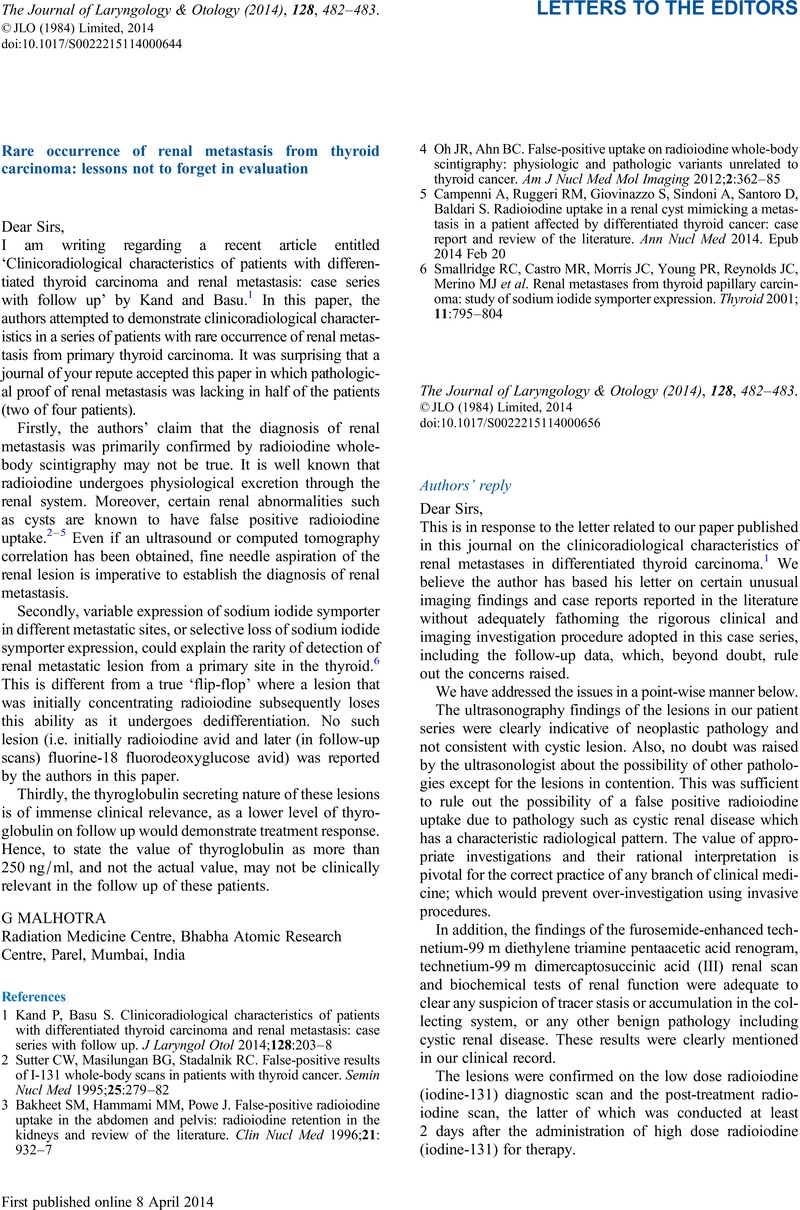No CrossRef data available.
Article contents
Authors' reply
Published online by Cambridge University Press: 08 April 2014
Abstract
An abstract is not available for this content so a preview has been provided. Please use the Get access link above for information on how to access this content.

- Type
- Letters to the Editors
- Information
- Copyright
- Copyright © JLO (1984) Limited 2014
References
1Kand, P, Basu, S. Clinicoradiological characteristics of patients with differentiated thyroid carcinoma and renal metastasis: case series with follow up. J Laryngol Otol 2014;128:203–8Google Scholar
2Song, HJ, Xue, YL, Xu, YH, Qiu, ZL, Luo, QY. Rare metastases of differentiated thyroid carcinoma: pictorial review. Endocr Relat Cancer 2011;18:R165–74CrossRefGoogle ScholarPubMed
3Stokkel, MPM, Duchateau, CSJ, Dragoiescu, C. The value of FDG-PET in the follow-up of differentiated thyroid cancer: a review of the literature. Q J Nucl Med Mol Imaging 2006;50:78–87Google Scholar
4Heston, TF, Wahl, RL. Molecular imaging in thyroid cancer. Cancer Imaging 2010;10:1–7Google Scholar
5Ong, SC, Ng, DCE, Sundram, FX. Initial experience in use of fluorine-18-fluorodeoxyglucose positron emission tomography/computed tomography in thyroid carcinoma patients with elevated serum thyroglobulin but negative iodine-131 whole body scans. Singapore Med J 2005;46:297–301Google ScholarPubMed
6Ma, C, Kuang, A, Xie, J, Ma, T. Possible explanations for patients with discordant findings of serum thyroglobulin and 131I whole-body scanning. J Nucl Med 2005;46:1473–80Google Scholar


